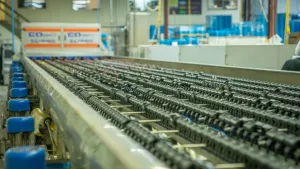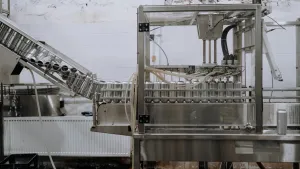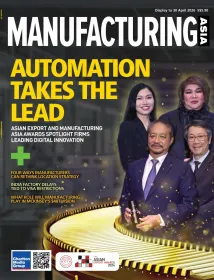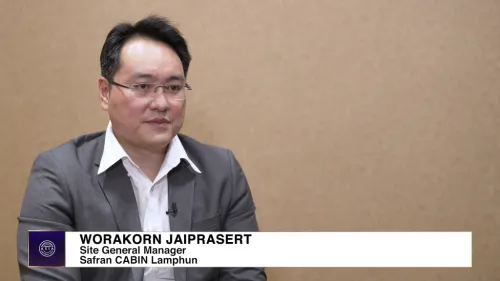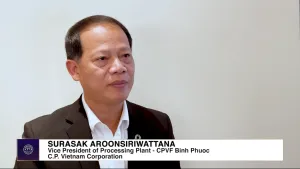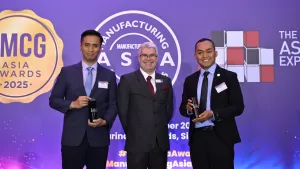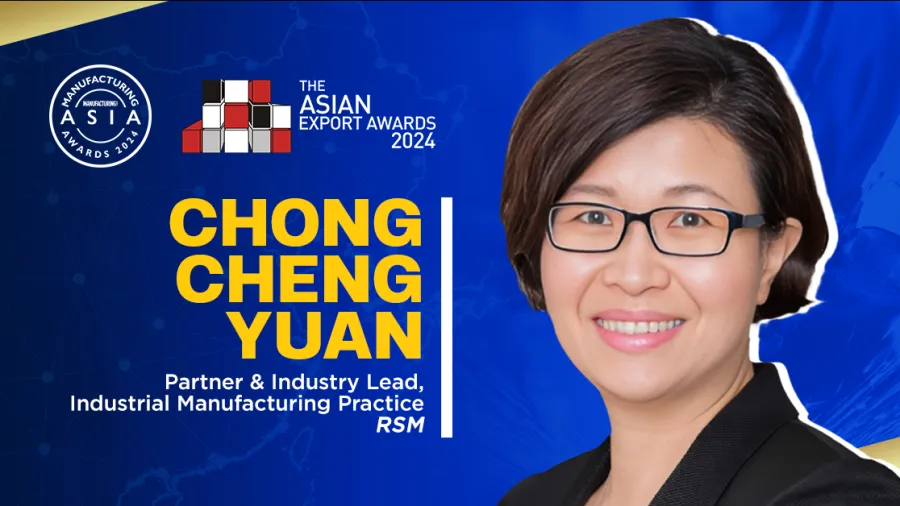
RSM’s Chong Cheng Yuan: Realign trade practices and explore new markets to mitigate risks
She delves into key strategies for improving operational efficiency, tackling sustainability challenges, and staying ahead of emerging trends in the manufacturing and export industries.
With the manufacturing and export industry driving growth through the production and international trade of goods, companies are focussing on innovation and efficiency to help them meet changing global demands.
Offering valuable insights is Chong Cheng Yuan, Partner & Industry Lead, Industrial Manufacturing Practice at RSM, with over 25 years of combined audit experience at Big 4 firms in Malaysia, Singapore, and New Zealand. She has deep-rooted expertise in assisting a diverse range of clients, including public-listed companies, multinationals, and start-ups in sectors such as manufacturing, energy and resources, real estate, retail, consumer products, industrial products, and non-profit organisations.
Before joining RSM, her previous role as a lead audit director at a Big 4 firm in Singapore involved managing quality reviews, IPO projects, and internal practice assessments across Southeast Asia. Cheng Yuan is also a Chartered Accountant in Singapore and New Zealand, a Registered Public Accountant in Singapore, and holds advanced degrees from the University of Otago.
In a recent interview, Cheng Yuan, as a judge at the Manufacturing Asia Awards and Asian Export Awards 2024, highlighted improving efficiency and quality through process reengineering and SOPs, overcoming sustainability and regulatory challenges, and adapting to emerging trends and market shifts.
Given your expertise in quality reviews and audits, what strategies can manufacturers and exporters employ to better ensure operational efficiencies in their process without diminishing product quality?
Manufacturers and exporters can enhance operational efficiencies without compromising product quality by focussing on three key areas.
Implement process reengineering. This can be done by analysing and redesigning existing processes to eliminate bottlenecks, minimise movements or handling frequency, and eliminate waste in the production process.
Implement standard operating procedures (SOPs). This would help to ensure consistency and streamline operations, with automation further improving precision and reducing errors.
Strengthen employee training and engagement. Manufacturers and exporters should provide ongoing training to employees to enhance their skills and knowledge, ensuring they can effectively operate machinery and handle quality issues.
Amidst the increasing importance of integrating sustainability measures in the operations of manufacturing and export companies, what obstacles do you think hold them back in fully doing so and what do they need to do about it?
Integrating sustainability measures into manufacturing and export companies is becoming increasingly critical due to regulatory pressures, customer demand and environmental concerns. Yet several obstacles hinder full adoption:
One major challenge is the significant upfront investment required for new technologies, processes, materials, and measuring devices. Many companies lack the expertise to effectively implement and manage sustainability practices. There is also a lack of uniform measurements across different industries.
Employees, management, or stakeholders may resist changes due to perceived complexity, disruption or uncertainty. Measuring and reporting sustainability performance can be complex and resource-intensive, making it difficult for companies to commit fully.
How can companies effectively adapt and better navigate the ever-changing regulatory environment in the industry?
For companies to adapt and better navigate the ever-changing regulatory environment in their industries, some common approaches they can adopt include:
First, companies should appoint dedicated compliance officers or teams responsible for staying up to date with regulatory changes and implementing compliance measures.
Second, these teams should actively monitor regulatory updates through industry associations, government websites, and specialised news services. Subscribing to these sources helps businesses remain proactive.
Lastly, companies should work with legal and regulatory experts to ensure accurate interpretation and implementation of complex regulations.
What emerging trends do you anticipate will have the most profound impact on the export and manufacturing sectors, particularly in the Asia-Pacific region, in the coming years?
The emerging trends I believe will have the most profound impact on the export and manufacturing sectors in the Asia-Pacific region are:
The integration of advanced technologies such as AI, IoT, and robotics in revolutionising manufacturing processes. These technologies enhance efficiency, reduce costs, and improve product quality.
There is a growing emphasis on environmental sustainability, driven by both regulatory pressure and consumer demand. Manufacturers are adopting greener practices like renewable energy, waste minimisation, and circular economy principles, helping them access markets that value eco-friendly products.
The recent pandemic and regional conflicts have exposed vulnerabilities in global supply chains, leading to a push for diversification and greater resilience. Manufacturers should invest in technologies and strategies to enhance supply chain visibility and flexibility.
Geopolitical tensions and evolving trade policies, such as the US-China trade relationship, are reshaping global trade dynamics. Companies in the Asia Pacific region are adapting by realigning their trade practices and exploring new markets to mitigate risks from these uncertainties.
As a returning judge at the Manufacturing Asia Awards and Asian Export Awards, what specific qualities, achievements, or innovative approaches are you going to look for in the exceptional entries for this year?
As a returning judge at the Manufacturing Asia Awards and Asian Export Awards, I will be looking at the following criteria for the entries for this year:
Innovation and technology adoption – I will be looking for entries that demonstrate the integration of advanced technologies and innovation in manufacturing processes or product design. I’ll pay special attention to unique products that stand out in the international market and innovations that address specific market needs.
Sustainability and environmental impact – I will evaluate the efforts of manufacturers and exporters to minimise their environmental footprint, including energy-efficient practices, waste reduction, and the use of sustainable materials.
Adaptability and resilience – I will assess how companies have navigated challenges such as supply chain disruptions, market fluctuations, or geopolitical uncertainties, and I will look for agile strategies that showcase resilience and flexibility.

